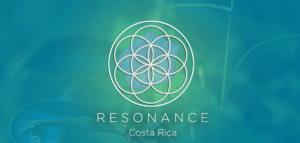(MENAFN- Costa Rica News) TCRN STAFF [...] Like you, we are tired of corporate media that is politically driven and one sided. So we decided to focus on news that's important to people. We're Creating a Conscious alternative news network that we feel the world needs and we need your help! We can't do this without you! Support news and media that matters and that can help change our world!
The work of more than 20 experts from the University of Costa Rica (UCR) to have more agile and cheaper tests of COVID-19 advanced this week to its next phase. These are tests that look for the virus in saliva and already show promising results.
'The first results show that in-vitro tests using synthetic genes achieved a sensitivity of 94.4% (capacity of the test to detect the disease) and a specificity of 100% (exclusion of healthy individuals)', explained the researcher German Madrigal.
The tests in question are 70% cheaper than PCR (currently used). According to the University, its system would be freely accessible so that the CCSS and private companies could generate production.
The secrets of saliva The tests developed by the UCR look for simpler and more agile systems than those available so far.For its application, a saliva sample is taken and heated to 95 ° C to accelerate possible traces of the virus, which avoids having to use molecular biology laboratories as before.
The sample turns yellow if it is positive and red if you rule out the virus.With these tests it would be the patient himself who could take the sample, which avoids the possibility of contamination.Finally, UCR experts explain that their results would be in just one hour.With the current budget, the price of each would be between $ 10 and $ 15.
The importance of these tests The arrival of the vaccine is just a first step in Pandemic control, which continues with both infections and other complications. Testing has been one of the weaknesses of the country compared to other countries. Recommended practices such as mass screening have been shelved, a situation that could change with tests of this type.
'The country could save money, carry out more tests and do massive screening in order to have a more realistic picture of infected and asymptomatic people, who are like a 'time bomb', because they are infecting others without realizing it', quoted researcher Andrés Gatica.
'In addition, it could be useful to identify patients who were already positive and, in this way, support vaccination programs,' he added. For the new phase of experimentation, the UCR will work with other Central American projects in the same line, which will speed up the tests and allow faster results.
[...]

Tomas Gomez Via
Beleida Delgado /* custom css */
.tdi_100_576 span{ margin-right: 4px; padding: 2px 8px 3px; color: #fff; background-color: #266fef; }.tdi_100_576 a{ margin-right: 4px; padding: 1px 7px 2px; border: 1px solid #ededed; color: #111; }.tdi_100_576 a:hover{ color: #000000; background-color: rgba(0,0,0,0); border-color: #266fef; }
/* landscape */
@media (min-width: 1019px) and (max-width: 1140px){
.tdi_100_576 a{ border: 1px solid #ededed; }
}
/* portrait */
@media (min-width: 768px) and (max-width: 1018px){
.tdi_100_576 a{ border: 1px solid #ededed; font-size:10px !important;
}.tdi_100_576 span{
font-size:10px !important;
}
}
/* phone */
@media (max-width: 767px){
.tdi_100_576 a{ border: 1px solid #ededed; font-size:10px !important;
}.tdi_100_576 span{
font-size:10px !important;
}
}
MENAFN23012021000216011060ID1101481653
Legal Disclaimer:
MENAFN provides the information “as is” without warranty of any kind. We do not accept any responsibility or liability for the accuracy, content, images, videos, licenses, completeness, legality, or reliability of the information contained in this article. If you have any complaints or copyright issues related to this article, kindly contact the provider above.